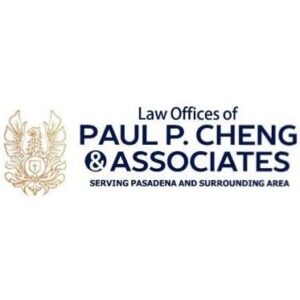Employment Law & Compliance Highlights from the Law Offices of Paul P. Cheng
DOL Expands Opinion Letter Program
On June 2, 2025, the U.S. Department of Labor (DOL) broadened its opinion letter program to give employers, employees, and other stakeholders clearer guidance on how federal labor laws apply to specific workplace situations. Requests for opinion letters can now be made to multiple DOL divisions, including:
- Wage and Hour Division (WHD)
- Occupational Safety and Health Administration (OSHA)
- Employee Benefits Security Administration
- Veterans’ Employment and Training Service
- Mine Safety and Health Administration
These written interpretations outline how the agency would apply the law to the facts provided in the request. While they do not carry the force of law, they are often an indicator of how the agency may enforce workplace laws. Employers should consult legal counsel before relying on an opinion letter in decision-making.
New Guidance for the Home Care Industry
On July 25, 2025, the DOL issued Field Assistance Bulletin No. 2025-4, changing the Wage and Hour Division’s (WHD) approach to enforcing the Fair Labor Standards Act (FLSA) in the home care sector.
The DOL has proposed rescinding its 2013 rule that extended certain FLSA protections to domestic service workers, including limits on third-party employers claiming exemptions from minimum wage and overtime pay. Effective immediately, WHD staff have been directed not to apply the 2013 rule and to stop enforcement actions against third-party employers relying on the live-in domestic worker exemption. This guidance will remain in place until a new rule is finalized.
DOL Relaunches PAID Program for Self-Reporting Wage & Leave Issues
On July 24, 2025, the DOL announced the return of the Payroll Audit Independent Determination (PAID) Program. The program allows employers to:
- Audit their own records for potential violations under the FLSA (minimum wage and overtime) and the FMLA (family and medical leave)
- Voluntarily self-report issues to the WHD
Participation does not prevent employees from pursuing private claims, so employers should speak with legal counsel before joining the program.
Key Takeaway:
These recent DOL actions create new compliance opportunities—but also new risks. If you have questions about how these changes affect your business or employment rights, contact the Law Offices of Paul P. Cheng & Associates for a confidential consultation.
– CALIFORNIA –
New Written Notice Requirement Under Expanded Victim Leave Law
In June 2025, the California Civil Rights Department (CRD) released its official Written Notice of Employee Rights and updated Frequently Asked Questions (FAQs) reflecting recent changes to the state’s victim leave law under Assembly Bill 2449.
Key Changes Under AB 2449 (Effective 2024):
- Expanded Definition of “Victim”: Now includes a broader range of individuals and family members.
- Additional Covered Crimes: More criminal offenses qualify for protected leave.
- Leave Options: Employees may use accrued vacation, personal leave, paid sick leave, or compensatory time off for qualifying absences.
Employer Obligations:
Employers must now provide the CRD’s Written Notice of Employee Rights:
- At hiring for all new employees.
- Annually to all current employees.
- Upon request from any employee.
- When an employee informs the employer that they or a family member is a victim of a crime.
The notice requirement became enforceable once the CRD published the official notice and FAQs in June 2025. Failure to comply could expose employers to penalties and enforcement actions.
What This Means for Employers & Employees:
- Employers should update onboarding materials, annual notices, and internal procedures to meet the new requirements.
- Employees should understand their rights to take protected time off and the available leave options.
If you have questions about compliance or need assistance updating your employee policies, the Law Offices of Paul P. Cheng & Associates can guide you through the process to ensure your business remains in compliance with California law.
These developments highlight the evolving landscape of employment regulations on both federal and state levels. Employers should stay updated and ensure compliance to avoid legal pitfalls and potential penalties. Legal counsel is recommended to navigate any complex changes effectively.
For more information please click here to contact us







